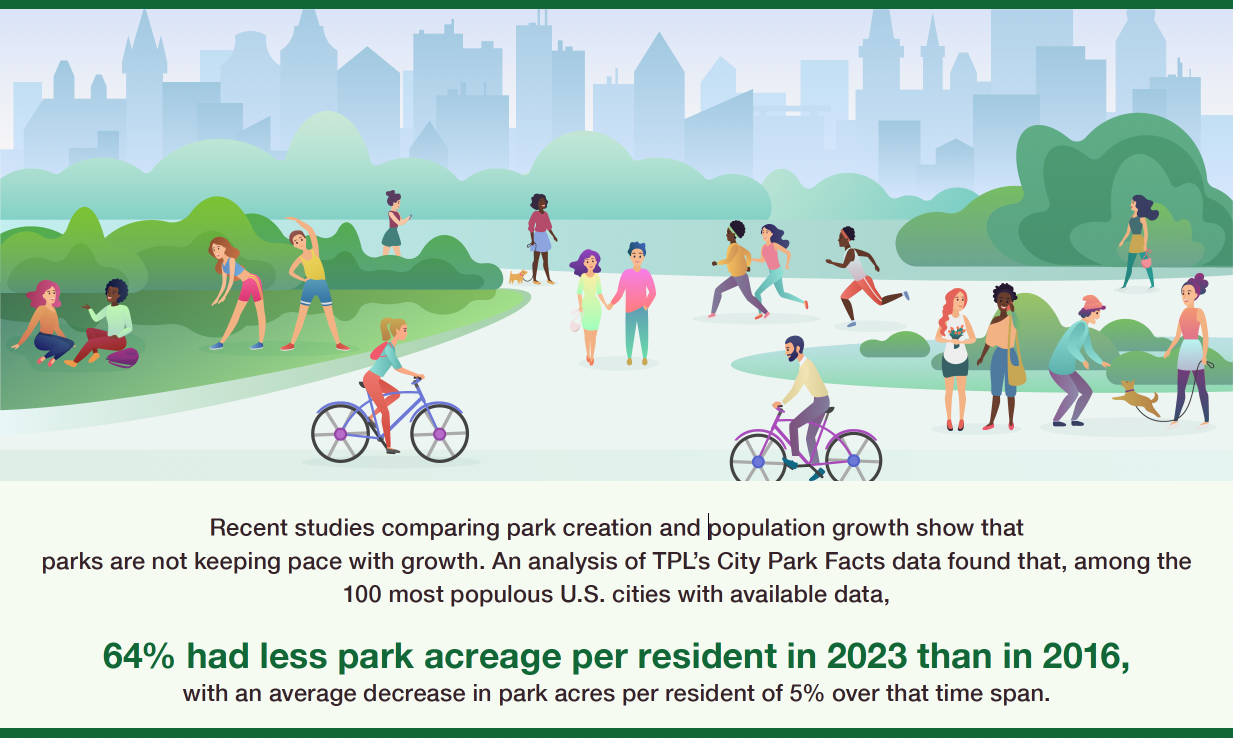
POLICY REPORT
From Development Policy to Parks
Expanding Park Access Through Dedication Ordinances and Impact Fees
As cities grow, many are losing ground on park access.
Many local governments use land use and development policies to support park creation. Specifically, tools like park dedication ordinances and park impact fees play an important role in ensuring parks keep pace with growth. But to have the most impact, these policies must be tailored to local conditions, thoughtfully designed, and kept up to date with evolving development patterns and community priorities.
New research from Trust for Public Land shows the opportunity—and the urgency—for local governments to implement development policies that ensure park creation keeps pace with new development and population growth:
• 65 of the largest 100 U.S. cities had less park space per person in 2023 than in 2016
• 2 in 3 recent park and greenway openings in 10 U.S. cities were made possible by land or funding from private development
Cities face competing pressures, highlighting the importance of adopting policies that balance growth with equitable access to green space. Without equitable land use policies in place, urban development could continue to widen the park equity gap—leaving communities without the green space they need for health, climate resilience, and quality of life.


